Introduction to Ghana's Sustainable Cocoa Initiative
Ghana has embarked on a groundbreaking initiative to promote sustainable cocoa production, reflecting its dedication to transforming agricultural practices in line with environmental and economic goals. In partnership with the United Nations Development Programme (UNDP), the Forestry Commission, and the Ghana Cocoa Board (COCOBOD), and funded by the Swiss State Secretariat for Economic Affairs (SECO), this initiative signifies a robust effort to bolster the agricultural sector while tackling pressing environmental issues.
This initiative is part of the third phase of the Green Commodities Programme (GCP), which began its journey in 2010. The programme aims to address supply chain challenges, foster environmentally friendly agricultural practices, and ultimately support smallholder farmers who are the backbone of the cocoa sector in Ghana.
Background and Objectives
The initiative, tagged as Effective Collaborative Action for Sustainable Commodity Production and Trade, is designed to create a framework for improved governance within Hotspot Intervention Area (HIA) structures. HIAs are specific zones identified for focused interventions to tackle deforestation and enhance productivity sustainably. By establishing HIA Governance Boards across six identified HIAs, the initiative seeks to promote stronger stakeholder relations and collaborative actions.
One of the primary goals is to combat deforestation and forest degradation, a significant issue for Ghana's landscape. Through coordinated efforts, the initiative hopes to enhance the resilience of farms, improve revenues for cocoa farmers, and alleviate poverty. The drive towards sustainability will not only benefit the environment but will also ensure that smallholder farmers have a more stable and prosperous future.
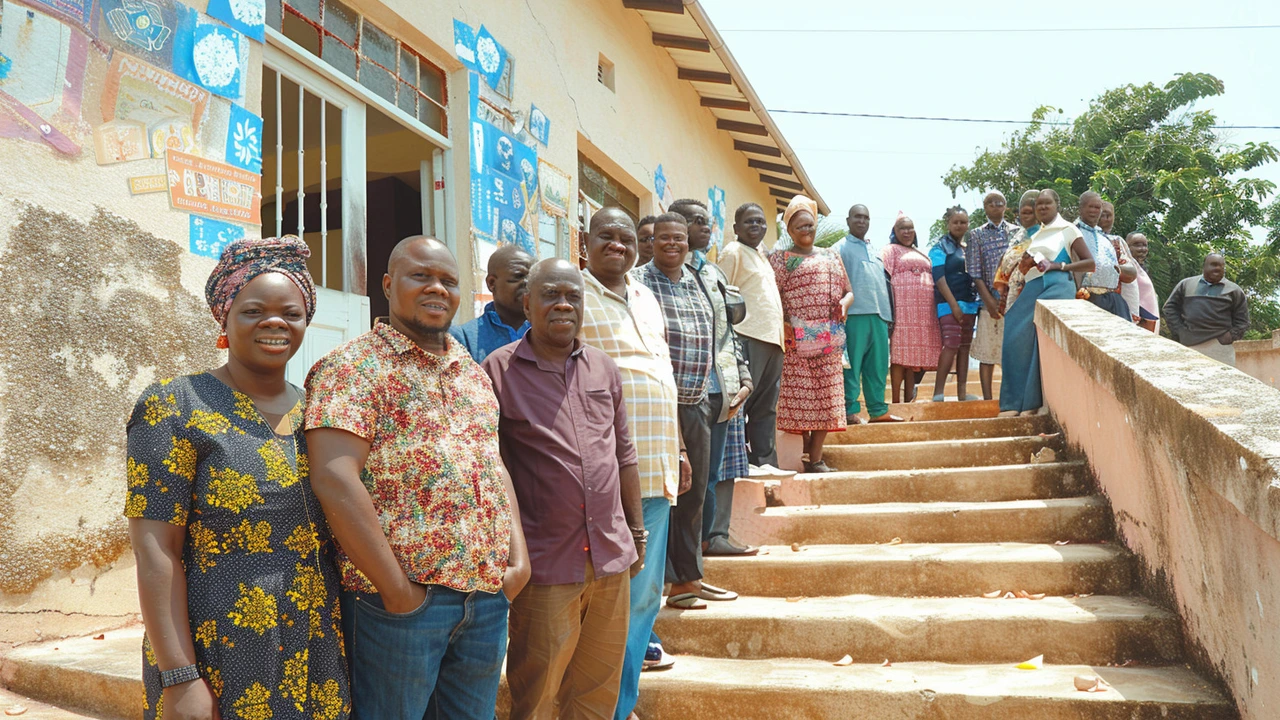
Vision and Strategic Framework
The Green Commodities Programme, under SECO and UNDP's stewardship, ventured into its third phase in 2015. Initially focusing on cocoa and coffee in Peru, and palm oil in Indonesia, it has expanded to include Brazil (soy and cattle), Ghana (cocoa), and Malaysia (palm oil) in its latest phase. The adoption of this programme in Ghana underscores the critical nature of the cocoa production landscape for the country's economy.
By leveraging the collaborative strengths of national and international partners, driven by a shared vision of sustainable agricultural development, Ghana aims to set a benchmark. This approach not only aligns with the national agenda but also echoes global commitments to sustainability, such as the 2021 Glasgow World Leaders Declaration on Forests and Land Use that sets an ambitious goal to end deforestation by 2030.
The Role of Stakeholders
Key players in the cocoa sector, including government agencies, private sector actors, and civil society organizations, play vital roles in the success of this initiative. Ayirebi Frimpong, Forest Specialist at UNDP Ghana, expressed excitement about the initiative's potential: 'We are thrilled to join this global movement, collaborating with UNDP, SECO, and major stakeholders in Ghana’s cocoa sector.' Such enthusiasm highlights the collective commitment to steering the sector towards a sustainable future.
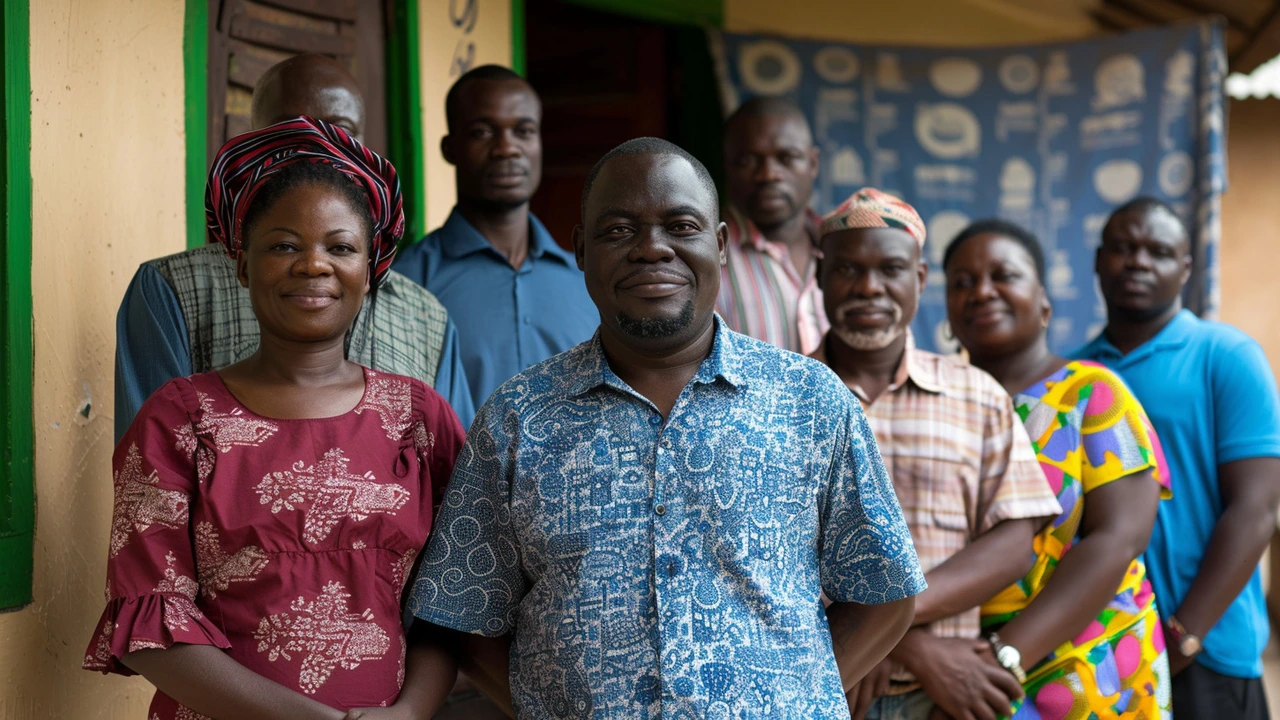
Challenges and Solutions
Agricultural growth remains a critical challenge in Ghana, compounded by rapid deforestation and land degradation. The initiative addresses these issues by advocating for policies that enhance sustainable practices extensively. Melissa Salazar, Programme Specialist at UNDP Food and Agricultural Commodity Systems, underscored the importance of this endeavour: 'Addressing agricultural growth in Ghana is impossible without solving development problems rooted in unsustainable practices. Our collective efforts can redefine the cocoa sector’s future.' Tackling these challenges head-on is vital for substantial and lasting impacts.
Expected Outcomes
The implementation of this initiative is expected to yield multifaceted benefits. By improving stakeholder coordination and promoting environmentally friendly practices, Ghana aims to set new standards in sustainable cocoa production. This will not only boost farm resilience and raise farmers' incomes but also contribute to the country's long-term economic stability and environmental health.
Strengthened by the collaborative platform, crucial dialogues among cocoa sector players can prioritize actionable strategies. The synergy created by the initiative is projected to support smallholder farmers, who will get better access to resources and knowledge, thereby enhancing their productivity and quality of life significantly.
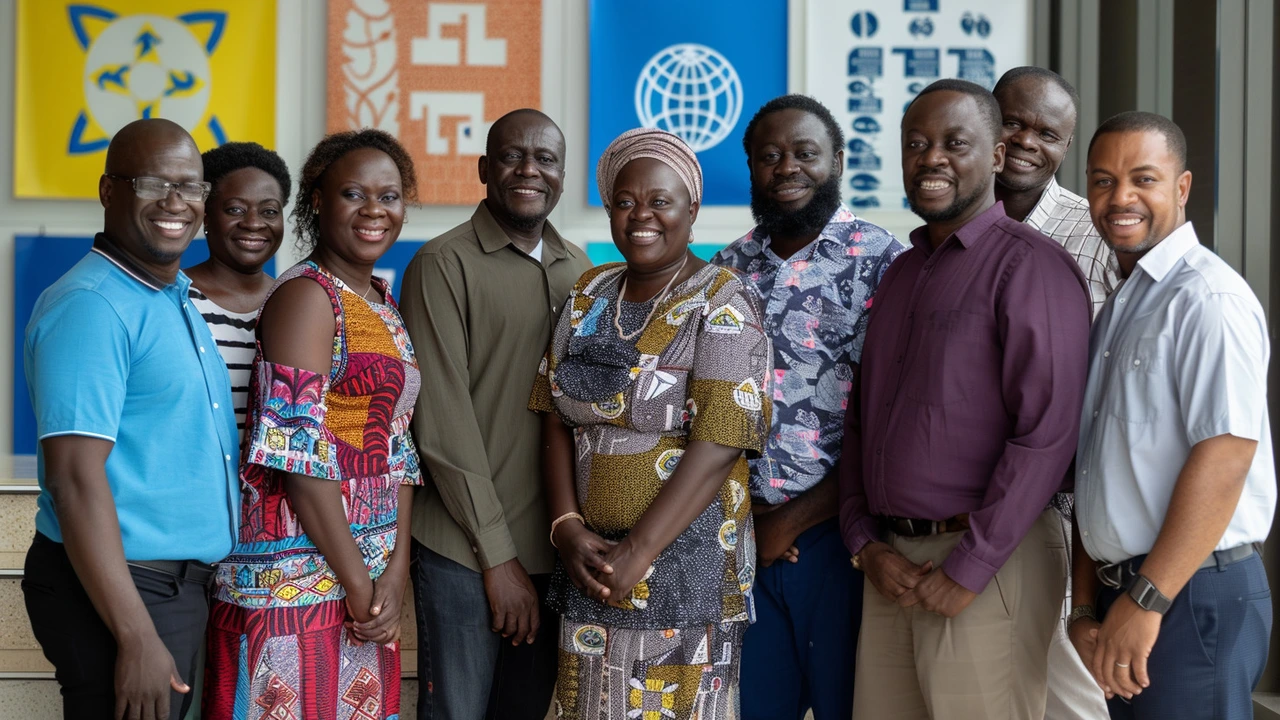
Global Reverberations
Ghana's comprehensive approach serves as a global model for sustainable agriculture. By harnessing the Green Commodities Programme framework, Ghana contributes significantly to international efforts to improve agricultural commodity sectors. The initiative's success will undeniably inspire and instruct other nations grappling with similar challenges, proving that sustainable agricultural transformation is achievable through committed and coordinated action.
In conclusion, this endeavour embodies Ghana's determination to champion sustainable agricultural practices, embodying a hopeful vision for the future. The promising collaboration embodied in this initiative paves the way for a greener and more resilient agricultural sector, benefiting not only Ghana but the global community at large.

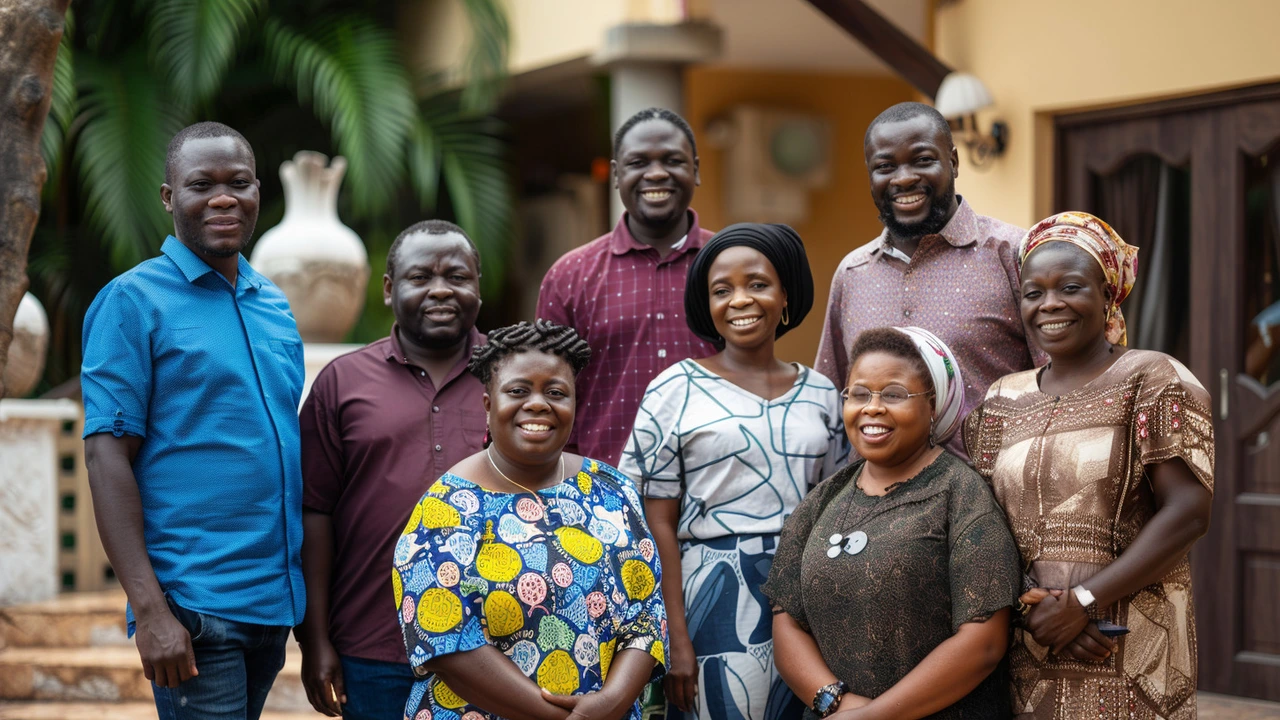


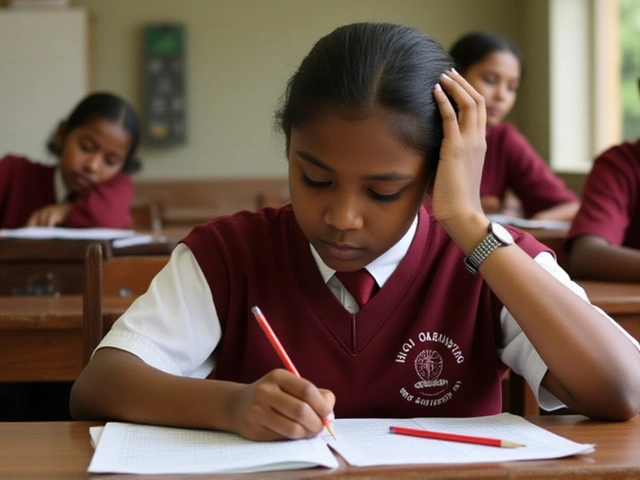


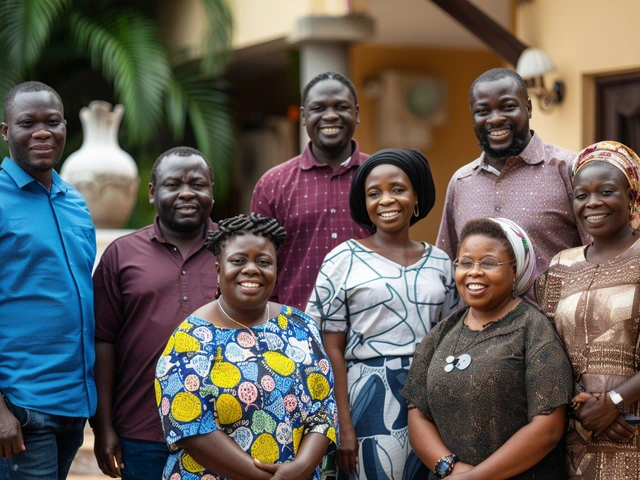
Ajay Ram
June 12, 2024 AT 17:49Ghana's new sustainable cocoa initiative reads like a modern fable in which the protagonist is the earth itself, and the supporting cast comprises farmers, NGOs, and multinational donors who each hold a piece of the narrative. The vision articulated in the programme mirrors the ancient African proverb that says, "If you want to go fast, go alone; if you want to go far, go together," underscoring the necessity of collective effort. By establishing Hotspot Intervention Area governance boards, the strategy weaves governance, ecology, and economics into a single tapestry that is both intricate and resilient. The ambition to curb deforestation while simultaneously enhancing farmer incomes rests on an understanding that environmental health and economic vitality are not mutually exclusive, but rather co-dependent variables in a complex equation. This initiative also aligns with the Glasgow World Leaders Declaration, thereby situating Ghana within a global chorus of nations striving toward a 2030 zero‑deforestation target. Moreover, the partnership with UNDP, SECO, and the Ghana Cocoa Board exemplifies a multi‑layered approach that leverages both local knowledge and international expertise, creating a feedback loop wherein policy is continuously refined. The emphasis on smallholder farmers reflects an inclusive development model that recognizes the crucial role of these actors in both cultural heritage and global supply chains. As the cocoa sector confronts pressures from climate change, market volatility, and land scarcity, the programme's adaptive management framework provides a buffer against systemic shocks. Symbolically, the cocoa bean becomes a unit of sustainability, a reminder that each harvest carries the weight of ecological stewardship. Practically, the HIA boards are poised to mediate conflicts, allocate resources, and monitor progress through transparent mechanisms, thereby fostering trust among stakeholders. The initiative is also a case study in how financing from agencies like SECO can catalyze local actions, turning abstract sustainability goals into tangible outcomes on the ground. By integrating biodiversity preservation with productivity enhancements, the programme acknowledges that a thriving forest is a living laboratory for agro‑ecological innovation. The projected outcomes-greater farm resilience, higher farmer incomes, and reduced emissions-are not merely aspirational; they are quantifiable metrics that can guide future policy adjustments. In summation, Ghana's initiative exemplifies a holistic, forward‑looking strategy that could serve as a blueprint for other cocoa‑producing nations seeking to balance profit with planet.
Dr Nimit Shah
June 14, 2024 AT 20:49Reading this, I can't help but feel a swell of pride for any nation that dares to intertwine tradition with cutting‑edge sustainability. While the numbers look promising, the real test will be in how these policies translate to daily life for the families tending cacao trees. If Ghana can maintain its cultural heritage while embracing modern agronomy, it sets a benchmark for all emerging economies.
Ketan Shah
June 16, 2024 AT 23:49From a cultural standpoint, the integration of local farmer wisdom with scientific methodologies is a noteworthy synergy; it reminds us that indigenous knowledge systems often predate modern sustainability frameworks and can enrich them substantially.
Aryan Pawar
June 19, 2024 AT 02:49Great steps forward!
Shritam Mohanty
June 21, 2024 AT 05:49All this green talk often hides a darker agenda: international bodies pushing their own interests under the guise of sustainability. The cocoa farmers might end up as pawns in a larger geopolitical game, with real profits flowing elsewhere. We should stay skeptical of any initiative that promises wealth while demanding sacrifices from the most vulnerable.
Anuj Panchal
June 23, 2024 AT 08:49The concern about external agendas is valid, yet the use of jargon such as "multistakeholder governance" and "adaptive management" indicates a deliberate attempt to create transparent, accountable structures that empower local agronomists and protect ecosystem services.
Prakashchander Bhatt
June 25, 2024 AT 11:49It's wonderful to see such collaborative spirit. Every bit of support helps lift communities. Keep the momentum going!
Mala Strahle
June 27, 2024 AT 14:49When I contemplate the interplay between cocoa cultivation and forest preservation, I sense a profound dialogue between humanity and nature; each cocoa pod becomes a metaphor for responsible stewardship. The initiative's emphasis on stakeholder coordination reflects an understanding that isolated actions are insufficient for systemic change. By weaving together policy, finance, and grassroots participation, the program mirrors the intricate patterns found in a rainforest canopy. This approach not only safeguards biodiversity but also nurtures socioeconomic resilience, a dual imperative in our era of climate uncertainty. Ultimately, the vision presented here is as much about cultivating ethical consciousness as it is about cultivating beans.
shubham garg
June 29, 2024 AT 17:49Super exciting news! Can't wait to see Ghana lead the way in sustainable cocoa.
LEO MOTTA ESCRITOR
July 1, 2024 AT 20:49Indeed, this momentum can inspire other regions to adopt similar models, fostering a ripple effect of positive change across the cocoa belt.
Sonia Singh
July 3, 2024 AT 23:49Nice to see such initiatives gaining traction. It's a win for both farmers and the planet.
Ashutosh Bilange
July 6, 2024 AT 02:49Yo this is lit!! Ghana's takin' it to the next level, no more waste, just cocoa love. Everybody's talkin' 'bout trees and beans, but we need real action, not just hype. Let's see those farms glow up, yo!
Kaushal Skngh
July 8, 2024 AT 05:49Seems like a decent plan, but details matter.
Harshit Gupta
July 10, 2024 AT 08:49Honestly, I'm not convinced this is anything more than a PR stunt aimed at fooling the Western market. Ghana needs to protect its own interests, not hand over control to foreign NGOs. If the farmers aren't truly benefiting, then all this green talk is just smoke. The real story behind the scenes-who's profiting?-needs to be exposed.
HarDeep Randhawa
July 12, 2024 AT 11:49Now, considering the multiplicity of stakeholders, the coordination mechanisms, and the overarching objectives-each component must synergize, otherwise the initiative risks fragmentation, inefficiency, and ultimately, failure.
Nivedita Shukla
July 14, 2024 AT 14:49One could argue that the very notion of sustainability in cocoa production is a theatrical performance, where each actor recites their lines to appease an audience of investors. Yet, the underlying desire for genuine ecological balance persists, flickering like a candle in a windstorm. If we let the drama subside, perhaps the real work can begin.
Rahul Chavhan
July 16, 2024 AT 17:49Thanks for sharing all these perspectives! It's clear the initiative holds promise, but staying vigilant and supportive will ensure it truly benefits the farmers and the environment.